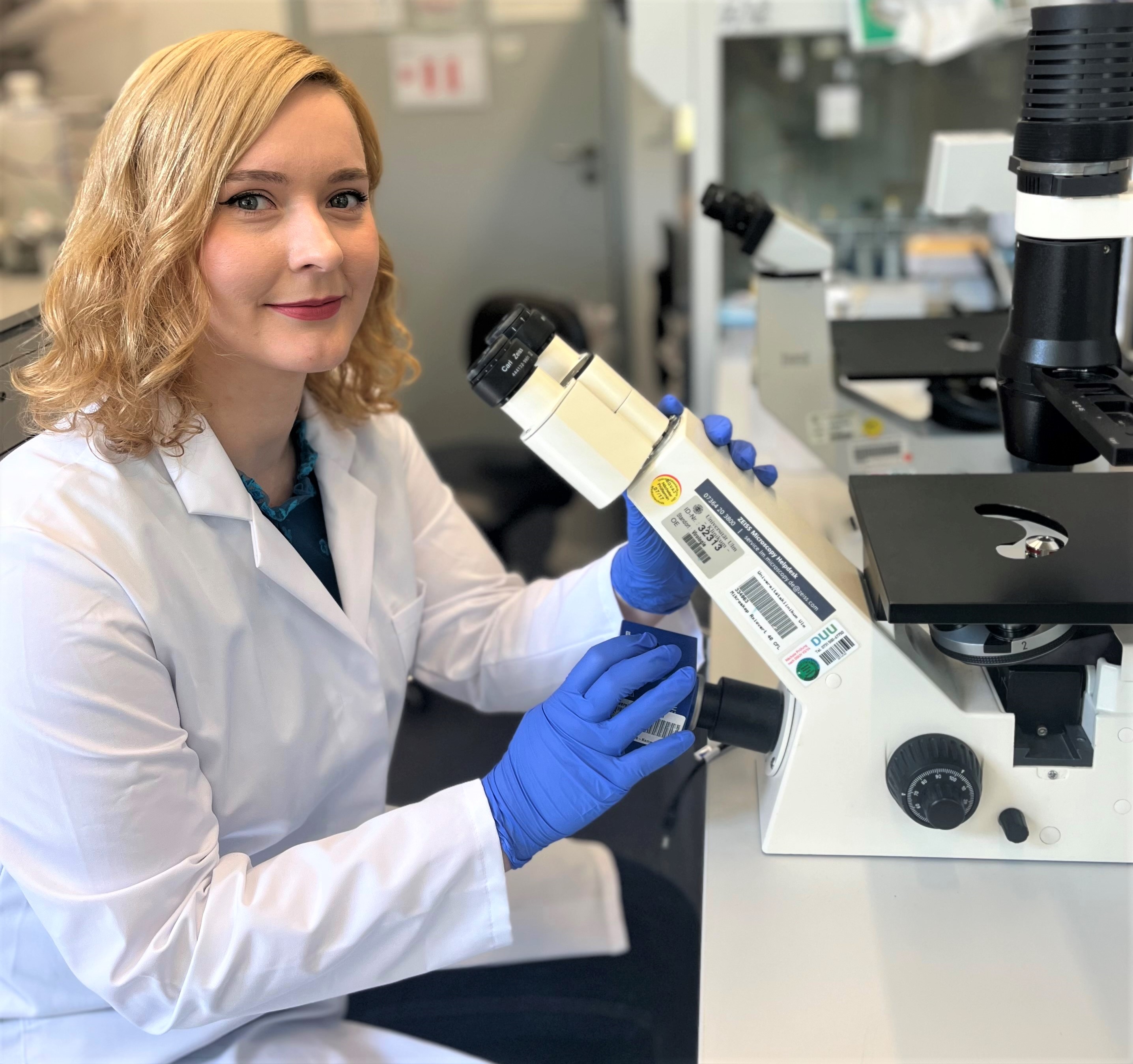Dr. Dorota Kmiec
Dr. Dorota Kmiec is a Marie Sklodowska-Curie Fellow and a junior group leader at the Institute of Molecular Virology (directors: Prof. Frank Kirchhoff and Prof. Jan Münch). Her research mainly focuses on the role of nucleic acid-binding cellular proteins in virus infection and evolution.
Viruses hijack the transcriptional and translational machinery of their host to replicate. During this process, viral genetic material interacts with multiple cellular proteins. DNA and RNA-binding proteins perform important functions in cell homeostasis, play pro- and anti-viral roles, activate host immune responses and impact disease pathogenesis. For example, Zinc finger antiviral protein (ZAP), targets CpG dinucleotides in viral RNAs. Viruses limit the number of CpG dinucleotides in their genomes, helping them to limit detection by ZAP. Still, ZAP promotes immune responses against many viral infections, including HIV and SARS-CoV-2. To destroy viral transcripts, ZAP recruits RNA-degrading enzymes, called ribonucleases. Dr. Kmiec is interested in how ZAP and other members of its antiviral complex help us fight viral infections. Similarly to ZAP, APOBEC3 proteins bind viral genomes. This results in cytosine deamination and mutations, which might have both positive and negative effects on the virus. Genomes of many pathogens, including HIV, SARS-CoV-2 and Monkeypox virus, carry signatures of APOBEC3 editing. Dorota is very interested in the long-term effects of ZAP and APOBEC3 proteins on viral evolution, especially in their role in the emergence of host-specific adaptations and immune or drug escape mutations. Furthermore, her research group also studies other nucleic-acid binding sensors and effectors, aiming to find factors responsible for differences in viral spread and pathogenesis, and exploit them in the context of new antiviral therapies.
Dr. Kmiec is funded by Else Kröner Fresenius Stiftung, European Commission and received intramural grants from the medical faculty of Ulm University. In 2022 she received Collaborative Research Centre 1279 Young Investigator award to identify novel coronavirus inhibitors in human peptidome.

